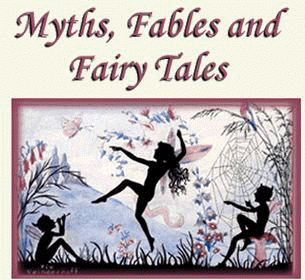
Fairy Tale
1. A fanciful tale of legendary deeds and creatures, usually intended for children.
2. A fictitious, highly fanciful story or explanation.
Fairy tale "authors:"
Charles Perrault (1628-1703)
- From wealthy French upper-bourgeois family
- Wrote stories or Tales from Times Past, with Morals: Tales of Mother Goose (1697)
- Marks new literary genre: fairy tales
Jakob (1785-1863) and Wilhelm (1786-1859) Grimm (a.k.a. The Brothers Grimm)
- Professors in Göttingen (now in Germany) until protest (origin of ‘tenure’) exiled them to Berlin
- Traveled through the countryside interviewing peasants about folk tales
- Coincided with growing interest in children’s education, the nature of the “folk”
What do these figures symbolize for you?:
- the wolf
- red cap
- forest
- path
- huntsman
- grandmother?
Recurring literary
motifs that represent the subtext or “deeper meaning” of literature
(literary interpretation)
- The rose: beauty and pain
- Threshold: allegory for the journey of a young man or woman into adulthood
- Wolf: symbol for male sexuality
- Red: metaphor for danger, maturation, and lust
Critical Approaches to Literature
| Anthropological approaches | focus on rites of passage from boy to man, girl to woman. Anthropologists believe that social practices and rituals chart our development as humans. |
| Feminist approaches | scrutinize the ways in
which characters adhere to and challenge stereotypes about gender
behavior. Feminists believe that our gendered identity is socially
constructed. Social customs determine what it means to act like a man,
or like a woman. |
| Postcolonial approaches |
pinpoint the power
relationships in a story, particularly natives and the foreigners who
rule them. According to postcolonial theorists, when a foreign power
takes over a native people, power relationship arise, and in order to
justify these relationships, the native is cast as an Other, and as
different. |
| Psychological
approaches |
examine latent fears (about parents and siblings) and adolescent wishes. Psychologists believe that our primary relationships with parents and siblings create neuroses from which we suffer as adults. |
| Marxist/Economic approaches | question the shifting tension between the mercantile and aristocratic classes, and focus on the material conditions of a story. Marxists believe that until the means of production are shared among all humans, we live in an unequal world. |
Party Game—
Play 20 questions to find out which literary element you are (yes
or no
answers only). You are only allowed to ask point-blank if you are a
certain literary element 3 times. Sit down when you find out your
identity and
prepare to give an example of what your literary element is. The
purpose of this
exercise is to help familiarize you with terms in literary analysis.
Sample Questions:
Am I the highpoint of a story or narrative? Do I provide readers with a sense of what happened to characters before the story?
Do readers need to look me up to find out multiple meanings and interpretations of a word?
Am I the wolf in Little Red Riding Hood?
| Action (96) Background (96) Climax (96) Development (96) Definition (20) Discourse (95) Ending (96) |
Imagery (102) Language (103) Narrator (98) Repetition (21, 97) Setting (101) Symbol (94102) Theme (104, 18) |